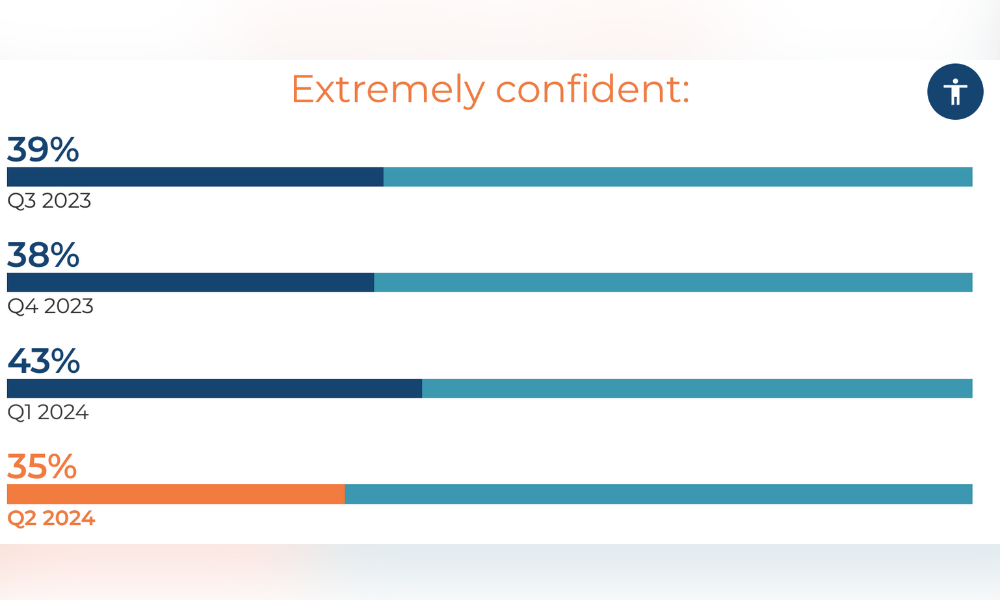Alainta Alcin has heard about the enormous transfer of wealth from baby boomers to their millennial children that is currently taking place – a movement that has been called the largest wealth transfer in history. But Ms. Alcin, a hospital systems analyst, says it bears little resemblance to her own family’s experience.
“Unfortunately, my mother is one paycheck away from not being able to pay anything,” said Ms. Alcin, a 34-year-old resident of West Palm Beach, Florida. “There is nothing to transfer.”
Baby boomers have trillions of dollars in wealth that some economists predict will have a significant impact on their millennial children when they inherit their elders’ money, homes, stock portfolios and other assets. But experts say the story of Millennials paying off debt and having greater purchasing power over the next two to three decades is complex — and leaves out families who don’t have enough wealth to pass on.
As a first-generation American, Ms. Alcin saw her mother struggle to raise herself and her five siblings after her father’s death. The older Ms. Alcin worked menial farming jobs — jobs that are becoming increasingly difficult to do at age 67, even as she tries to make higher payments on her adjustable-rate home mortgage.
“She only has a limited amount of time in which she can continue to work,” Ms. Alcin said. “It just seems like economists are missing some of the hidden stories of people who don’t have wealth to begin with.”
Young adults in particular, who are caring for aging parents while trying to build their own retirement nest eggs, worry that this tipping point will leave them even further behind. Federal Reserve data shows that the average net worth of those ages 65 to 74 was nearly $1.8 million in 2022. However, this number is skewed by those at the higher end of the wealth spectrum. On average, the median net worth for this age group was about $410,000, a figure that includes the value of homes and investments.
Estimates of how much wealth will be transferred in the coming decades vary widely, but even low-level calculations suggest that tens of trillions of dollars will change hands as baby boomers die. Some $84 trillion is expected to be passed from older to younger generations between now and 2045, including $16 trillion in the next decade. The rise in real estate values and the historically long bull market before the pandemic, as well as the shift from defined benefit pensions to defined contribution plans like 401(k)s over the last generation, have made this possible, experts say.
Many monthly pension payments cover most or all of the costs of daily living, but with rare exceptions, payouts stop upon the death of the worker or his or her surviving spouse. However, retirement accounts such as 401(k)s and individual retirement accounts are treated differently.
“One of the interesting things about 401(k)s is that, unlike pensions, they can be rolled over,” said Geoffrey Sanzenbacher, an associate professor of economics at Boston College. “There is a possibility that this wealth transfer could occur.”
And some boomers have both pensions and 401(k)s, giving them the flexibility to live off their retirement benefits and Social Security and save the defined contribution balance for their heirs.
However, research suggests that even in families that have managed to accumulate some wealth, millennials may be overconfident when it comes to expectations about the size of their inheritance. A survey conducted by Alliant Credit Union two years ago found that just over half of millennials expecting an inheritance expected to receive at least $350,000. However, 55 percent of baby boomers who say they plan to leave wealth to their children or other younger family members say the amount will be less than $250,000.
“Parents have less money than their children think,” said Sumeet Grover, Alliant’s chief digital and marketing officer.
A gap between generations and a unity
Boomers say their children are living beyond their means. Millennials say their parents have no idea how expensive it is to start a family today. What’s more, financial advisors who work with each generation say they see a widespread lack of transparency — although, again, they disagree about what’s causing this gap.
Sophia Bera Daigle, founder of Gen Y Planning, a financial planning firm in Austin that works primarily with millennials, suspects that holding on to family money is too tempting for baby boomers to give up. “I think part of it is control,” she said. “They really like having that control and being able to give out these gifts as and when they want or when they see fit.”
Baby boomers also may not understand what young adults have to pay for a home, child care and college, even if those young adults are their own children, Ms. Daigle said.
In some cases, this discrepancy extends to baby boomers’ own finances.
“I think that in the ’90s with the tech boom, a lot of people were making a lot of money and expecting the same amount of money to be available to them in the future,” she said, but everything from recessions to health crises to Divorces can crack that nest egg.
Baby boomers respond that they are acting in the best interests of their children.
“In some families, it influences the parent’s perception of the child’s work ethic and spending habits,” said Scott Oeth, a financial planner in Lake Edina, Minnesota. “They don’t want it to look like their children are dependent on their inheritance.”
The generations agree that practically no one talks about it.
Alvin Carlos, a financial planner in Arlington, Virginia, said only about 10 percent of his millennial clients have discussed estate planning with their parents. “I think the majority of our customers believe their parents are in a decent financial situation, but they don’t know that for sure.”
Ms. Daigle also said she sees generational differences in how comfortable it is to discuss financial matters. “I have never seen a boomer be extremely transparent with their children’s finances unless the parent lives with them,” she said.
Alliant’s Mr. Grover said Millennials are comparatively more open about their finances because as a generation they have been conditioned through social media to easily obtain and share information. “If you look at millennials, they are extremely comfortable talking about money,” he said. “I think one of the reasons for that is the internet,” because young adults are used to sharing so much about their personal lives online.
The cost of care mystery
One of the biggest risks associated with not sharing financial and estate planning information is that a parent may need to be cared for in a nursing home for an extended period of time.
State-administered Medicaid programs are often families’ only option for this care, but eligibility requirements mean savings must be spent and assets must be sold or liquidated.
“This next generation will have to wait longer and may get less because their parents had all the costs of long-term care in their final years,” said Steve Parrish, co-director of the Center for Retirement Income at the American College of Financial Services.
People who want to leave an inheritance to their children and minimize taxes and transfer delays often set up trusts for their assets. However, this assumes that these families are wealthy enough to be able to afford to hire an inheritance lawyer. Middle-class millennials, who would otherwise inherit a home and perhaps the contents of a bank account, are most at risk if that asset is depleted so their parents can qualify for Medicaid.
And some don’t expect anything at all.
Joyce Hahn, a first-generation American, said she worried about her father as he neared 80 years old. Although he has held a variety of jobs since emigrating from South Korea in the 1970s, Ms. Hahn, 39, said she didn’t believe he would ever be able to save for retirement.
Ms. Hahn, a Census Bureau employee and Washington, D.C., resident, already shares the cost of housing her father in rent-controlled senior housing in California with her younger sister. It also covers additional costs that are not covered by insurance, such as dental treatment. “We never really talk about things like that,” she said. “We grew up with the Asian mentality of taking care of our elders,” she said.
She said she wished she had more insight into her father’s finances. “I can’t imagine him getting to the point where he needs long-term care, but I don’t want to be surprised by that.”
As significant as the impact of long-term care costs can be on affected families, social policy experts warn that there is a much larger group of people who could be harmed by the way this wealth is transferred: those Millennials whose parents do not Being able to build wealth comes first.
“It just exacerbates wealth inequality, which has gotten worse over the last few decades,” Sanzenbacher said. “It is becoming increasingly difficult to compete for resources.”
Marsha Barnes, founder of Finance Bar, a financial planning firm in Charlotte, N.C., said many of her younger clients are worried about outliving their 401(k) balances.
“A lot of my customers are Black,” said Ms. Barnes, who is also Black. “Maybe they started saving money for their 401(k) a little later in life,” she said, because many needed to support their parents in retirement.
“I have a client who’s in her early 30s and now she’s helping her mother because her father passed away – she just feels this level of responsibility,” Ms Barnes said.
Source link
2024-04-28 07:00:36
www.nytimes.com













